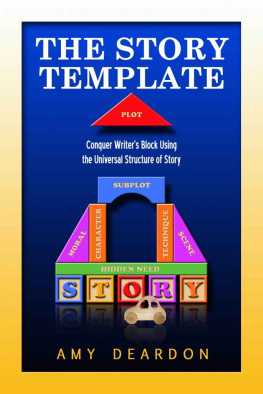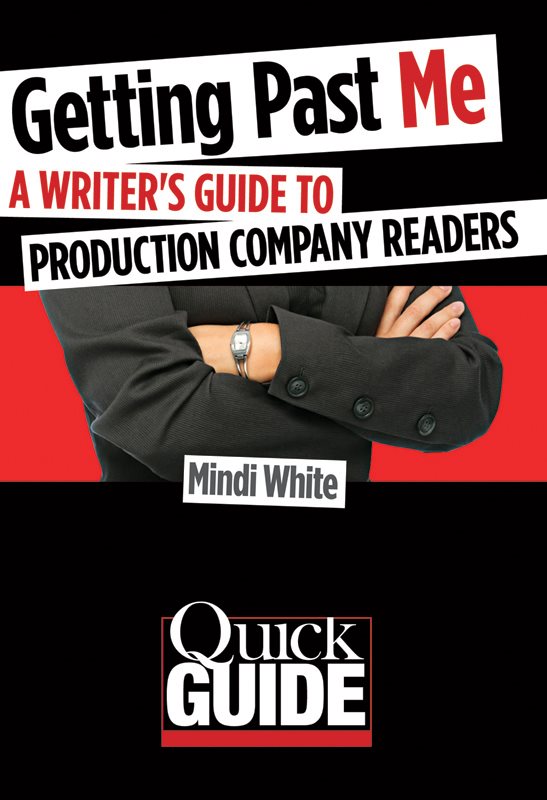
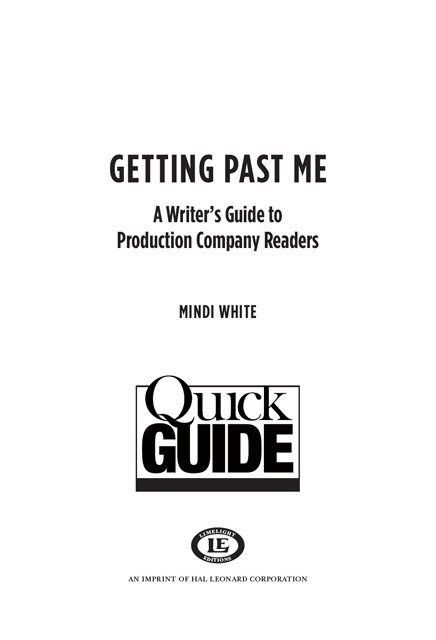
Copyright 2011 by Mindi White
All rights reserved. No part of this book may be reproduced in any form, without written permission, except by a newspaper or magazine reviewer who wishes to quote brief passages in connection with a review.
Published in 2011 by Limelight Editions
An Imprint of Hal Leonard Corporation
7777 West Bluemound Road
Milwaukee, WI 53213
Trade Book Division Editorial Offices
33 Plymouth St., Montclair, NJ 07042
Book design by Mark Lerner
Library of Congress Cataloging-in-Publication Data White, Mindi.
Getting past me: a writers guide to production company readers / Mindi White.
p. cm.
1. Motion picture authorship. 2. Motion picture plays--Technique. I. Title.
PN1996.W37 2011
808.23--dc23
2011026237
www.limelighteditions.com
For my father, who taught me humor and love of language, and for H.P., for everything
Contents
Id like to thank James Napoli for many things, but for the purposes of this book Ill thank him for introducing me to story analysis. He said, Youre good at that. You should do that, on reading my very first coverage. He got me my first reading job, at a French film financing company where I slogged through stacks of scripts and honed my craft. He also asked, So when are you going to write your script? freaking me out completely and turning me into a screenwriter. That led to me becoming an author.
Ive worked with some fantastic people in my years reading scripts. The standouts are Bettina Moss, Sam Martin, Rob Potter, Kathy McCullough, Steven Woolworth, Misse Getty, and Matt Bass. Id like to thank them all for being fabulous in too many ways to count and for being my friends. Id like to give a big shout out to everyone past and present at HBO Films, DreamWorks, Miramax, CAA, and UTA, and to all my private script-consultation clients.
Its been an absolute delight working with my agent, Kathleen Rushall at Waterside Productions. Special thanks to Bill Simon for his generosity and assistance in leading me to Waterside, and for being such a terrific guy.
Everyone at Limelight Editions and at Hal Leonard Performing Arts Publishing Group has been a pleasure to work with. Im grateful for their positive reception to my book and for their facility in making the publishing process user-friendly to a newbie like me.
Copious appreciation goes out to all my friends who have encouraged and cheered me along the way. Special thanks to the Saturday morning group, especially those folks who said, Just write the book already. Some of these friends are fellow authors, and Id like to single out Alan Watt, Stephanie Hubbard, and Allen Zadoff as being especially helpful and fabulous. Theyre also great writers.
Big gratitude to everyone who has ever been in my writing group, Shut Up and Write, for being there when I need to shut up and write for two hours every Wednesday night. This entire book was written during SU&W sessions. Stalwarts Michael Kostroff and Carolyn Kraft, thank you.
Id like to extend a special nod of appreciation to everyone, staff and customers, and everything at the Bodhi Tree Bookstore. May it live forever.
Thank you, Kristal and Ben, for being the best kid and grandkid on the planet, ever. I am constantly astonished by how smart, funny, strong, beautiful, inspiring, and delightful you are. You are my reason for being.
Ive thanked James Napoli but Ill thank him again, for being a brilliant writer/director, for being a source of strength, depth, surprises, and endless laughter, and for being my boon companion.
Me? Im a reader. Readers are also known as story analysts, script analysts, or minions of Satan. We are the gatekeepers that guard your entre into Getting Produced World, or at least Getting Considered World. Odds are that you have been tormented by being told that some reader passed on your script/book/treatment/manuscript/material. You are maddened to distraction that some dork who took a few creative writing classes in junior college fancies that he or she is an expert on writing and completely missed your genius. Somewhere though, deep down in the murky depths of your writerly soul, you wonder what you can do to curry the readers favor enough to get your work considered. You wonder, in essence, how to go about Getting Past Me. Thats what this book will help you do.
Besides passing on your script, sometimes repeatedly, at numerous production companies and agencies, I have taught classes in story analysis. I always tell my students that it is the readers obligation to elevate the art of writing. It is not my job to dismiss a script contemptuously. It is my job to succinctly synopsize a work and tell my clientthe production company or agencywhether the submission is a good fit for its purposes. I also point out the strengths and weaknesses of the writer and his or her work.
That said, all readers know about Sturgeons Revelation, in essence if not by name: Ninety percent of everything is crud. We actually use a more crude term for this, but frankly, we curse a lot to shore up our fundamental insecurity. The 90 percent rule holds true at every level, from top companies and agencies to skanky dumps that have no submission standards whatsoever.
This book will help you avoid being automatically written off as part of that 90 percent, or as what I like to call dreck-adjacent.
This is not, I repeat not, a book on how to write. Thats the job of your writing teacher, your muse, and your own blazing creative juices. Instead, this book will give you a way to let your work shine through. It will, in fact, help you write. Additionally, Ill provide you with a way to get to know who we the readers are, what we look for, what irritates us, and what makes us happy. Irritating us is a bad idea. Bad. Making us happy is a good idea. And so, herewith, tips on making the reader happy.
Be assured that coddling us does not compromise your integrity in any way. This book will not change the essence of your work at all. Instead, it guides you to pitfalls and key tips you probably dont know exist. You will learn about Things that Should Matter but Dont, Things that Shouldnt Matter but Do, stumbling blocks, ways to make the reader hate you, ways to make the reader love you, and lists of To-Dos and To-Donts.
Whats the point? Whats the point of modifying your writerly M.O. to suit our snarky little personalities and quirks? Well, it will clear the way for us to look at your story with the evenhandedness and clarity that it deserves. It will assure you a fair read.
And it will make me happy. I love the written word, and I love reading a skillfully crafted work. I love being in a story, not pulled out by some irritant but deep in it, where you want me to be. Cmon, make me happy. In return, I promise that whoever is reading your script, book, treatment, comic, manuscript, whatever, will be more open to your words, to your story. Isnt that what you want?
We know that your writing is your lifeblood. We know you pour your heart, soul, hopes, dreams, or at least considerable time into crafting your work. I always tell my students it is our responsibility to improve the writing in the world. I tell them that they are reading some writers blood and guts and sweat equity, and that they should always honor the work by being fair and diplomatic. I swear, I really do. I havent taught every reader out there, but my story-analysis students leave my class respecting the writer. I insist on it.
Next page
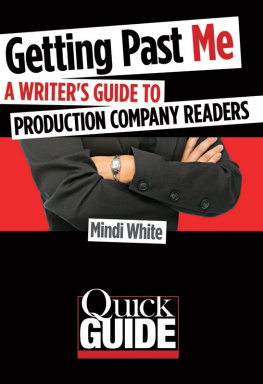

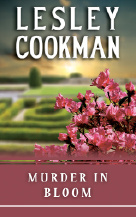
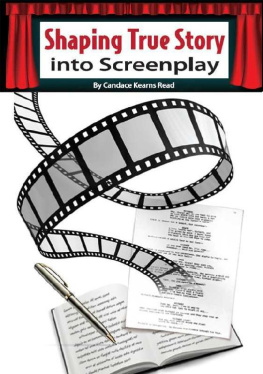
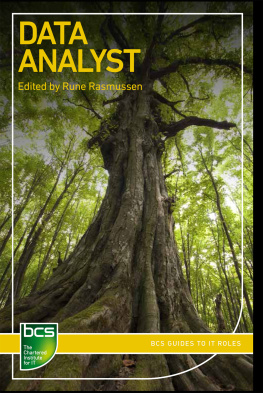
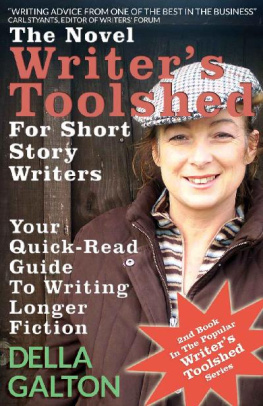
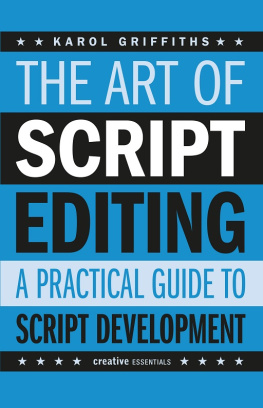
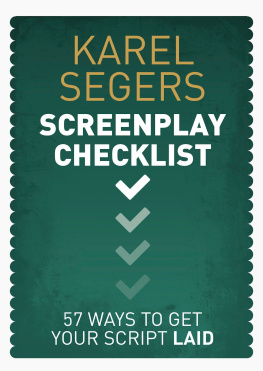
![Watt - The 90-day screenplay : [from concept to polish]](/uploads/posts/book/103527/thumbs/watt-the-90-day-screenplay-from-concept-to.jpg)
